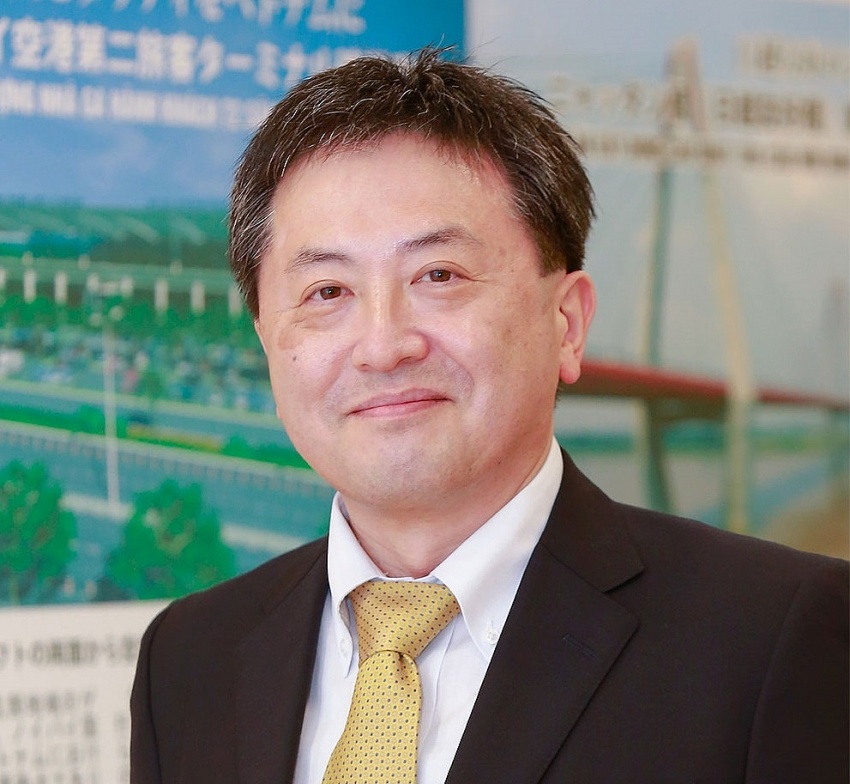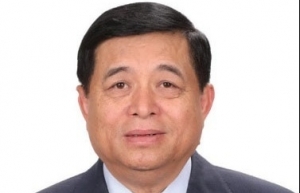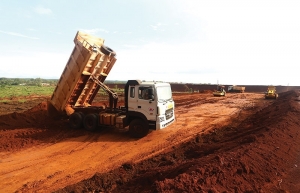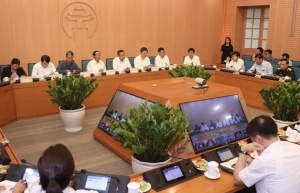Making the most of Japan’s support
Vietnam has been deploying the Socioeconomic Recovery and Development Programme, which includes infrastructure development and public investment items. What specific cooperative activities has the Japan International Cooperation Agency (JICA) carried out to support the nation in this programme?
 |
| Shimizu Akira, chief representative at the Vietnam Office of the Japan International Cooperation Agency |
Public investment will play a crucial role in creating momentum for economic development. In addition, public investment can also be a catalyst for the growth of the private sector. Investing in infrastructure is extremely important.
Up to now, about 70 per cent of Vietnam’s national highways have been renovated and nearly 10 per cent of electricity output is produced through JICA’s cooperation projects.
Japan’s official development assistance (ODA) has supported the construction of many socioeconomic infrastructure projects, such as road systems with a total length of about 3,000km; Cai Mep, Thi Vai, and Lach Huyen ports; Noi Bai and Tan Son Nhat international airports; several power plants; water supply and drainage systems; and the railway system.
The infrastructure development project enhances transport connectivity among the localities, and helps strengthen ASEAN connectivity and goods supply chain, while allowing people to travel smoothly, responding to the rapid economic and population growth in Vietnam.
Investing in a complete socioeconomic infrastructure not only brings a more convenient lifestyle but also contributes to the socioeconomic development of localities, narrows the development gap among the regions, and creates favourable conditions for the investing and business environment.
Therefore, the government focuses on perfecting infrastructure to attract more foreign enterprises, such as transport systems, power supply systems for industrial zones, logistics networks, and distribution networks for the import and export of goods.
So far, foreign-invested enterprises have mainly focused on large cities and their neighbouring localities. However, the Japanese ODA also has been focusing on infrastructure development for a better livelihood for the people in rural and remote areas. For instance, we have long been supporting the transport sector loan to develop over 240 bridges, which help to create better access and connectivity for the people living in remote areas.
What recommendations can JICA provide to help Vietnam accelerate public investment disbursement?
We learnt from mass media and other development partners that low disbursement is experienced in many projects, not only in JICA and ODA projects but also in domestic funded ones. A group of six banks, together with JICA, has conducted surveys and analyses that we discussed with the government through the ODA Steering Committee and on other occasions.
In brief, we named several major reasons such as regulation and procedures being too complex, repetitive, conflicting, and continuously changing so that many agencies are confused and lack understanding of what to do; and oversight agencies many times give inconsistent interpretations but impose strict implementation so it is difficult for project owners.
In addition, low project readiness is caused due to inflexibility in taking advanced action; and changing regulations on ODA on-lending have also caused disbursement delays due to the introduction and confusion surrounding new procedures and scrutiny in the appraisal process.
JICA continues to discuss these issues with concerned agencies. We share our assessment of fund requirements of projects with them to support their planning and assessment process. We are actively working to advise more harmonised procedures between the government and development partners to minimise possible conflicts or lags during implementation.
Regarding the government’s efforts for improving disbursement, we recognise its actions in approving additional budgets for individual projects and its sincerity to listen to our recommendations. But we hope to see more prompt and bold actions by concerned agencies to improve the disbursement ratio.
The Vietnamese government has been effectively managing the economy with policies issued to support individuals and enterprises. How has JICA cooperated with Vietnam in this regard?
In terms of support for economic growth, Japan and Vietnam have given high priority to the Ho Chi Minh City Urban Railway Line 1’s Ben Thanh-Suoi Tien section. So far, all of the project’s trains have been transported to Vietnam, and the work is being accelerated so that the line can be put into service soon.
Furthermore, JICA is also supporting Vietnam’s government to realise the carbon-neutral energy supply, namely the onshore wind power project in the central province of Quang Tri, which was funded under the scheme of overseas investment loan last May. The project has been completed and went into commercial operation at the end of October.
JICA will keep supporting Vietnam focusing on economic development and expanding the safety net including in the healthcare sector to help Vietnam recover quickly and resume high economic growth.
 | Institutional improvements to set stage for disbursement Disbursement of public investment since early this year remains slow. Minister of Planning and Investment Nguyen Chi Dung explained to VIR’s Nguyen Huong the reasons behind this situation, and proposed solutions to speed up progress. |
 | Direction for disbursement tightened after mixed results Despite the challenges surrounding various projects, public investment disbursement has continued to be prioritised as a key task for the country to boost economic growth. |
 | Deputy PM asks Hanoi to accelerate public investment disbursement Deputy Prime Minister Le Van Thanh has asked Hanoi to clarify the causes behind the sluggish disbursement of public investment. |
What the stars mean:
★ Poor ★ ★ Promising ★★★ Good ★★★★ Very good ★★★★★ Exceptional
 Tag:
Tag:
Related Contents
Latest News
More News
- Digital shift reshaping Vietnam’s real estate brokerages (December 31, 2025 | 18:54)
- Allen & Gledhill recognised as Outstanding M&A Advisory Firm (December 18, 2025 | 14:19)
- Inside Lego Manufacturing Vietnam (December 18, 2025 | 11:45)
- The next leap in Cloud AI (December 11, 2025 | 18:19)
- Vietnam’s telecom industry: the next stage of growth (December 11, 2025 | 18:18)
- Five tech predictions for 2026 and beyond: new era of AI (December 11, 2025 | 18:16)
- CONINCO announces new chairman and CEO (December 10, 2025 | 11:00)
- How AWS is powering the next-gen data era (December 09, 2025 | 13:14)
- Outlook in M&A solid for Singapore (December 08, 2025 | 10:31)
- Vietnamese firms are resetting their strategy for global markets (December 05, 2025 | 17:04)






















 Mobile Version
Mobile Version